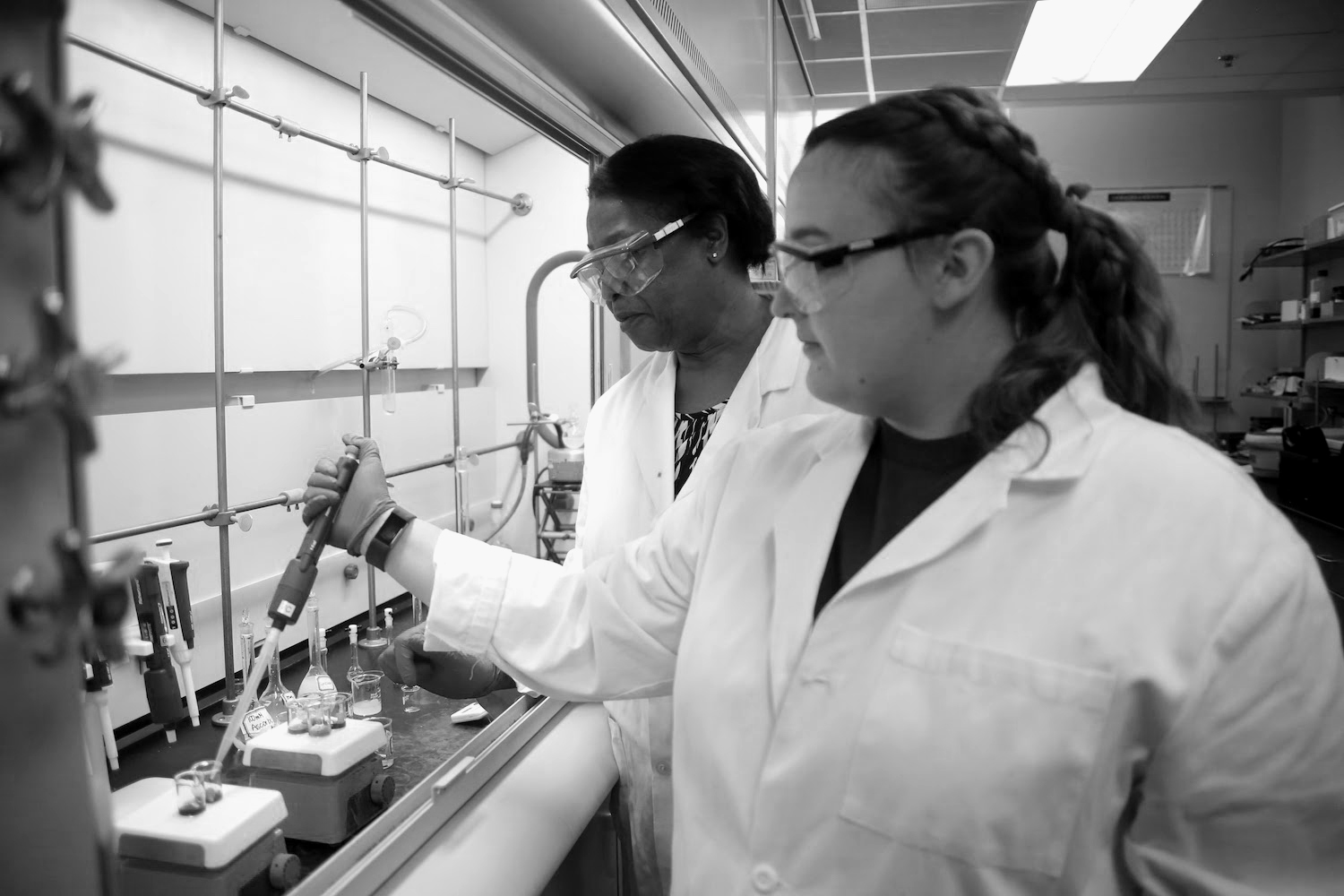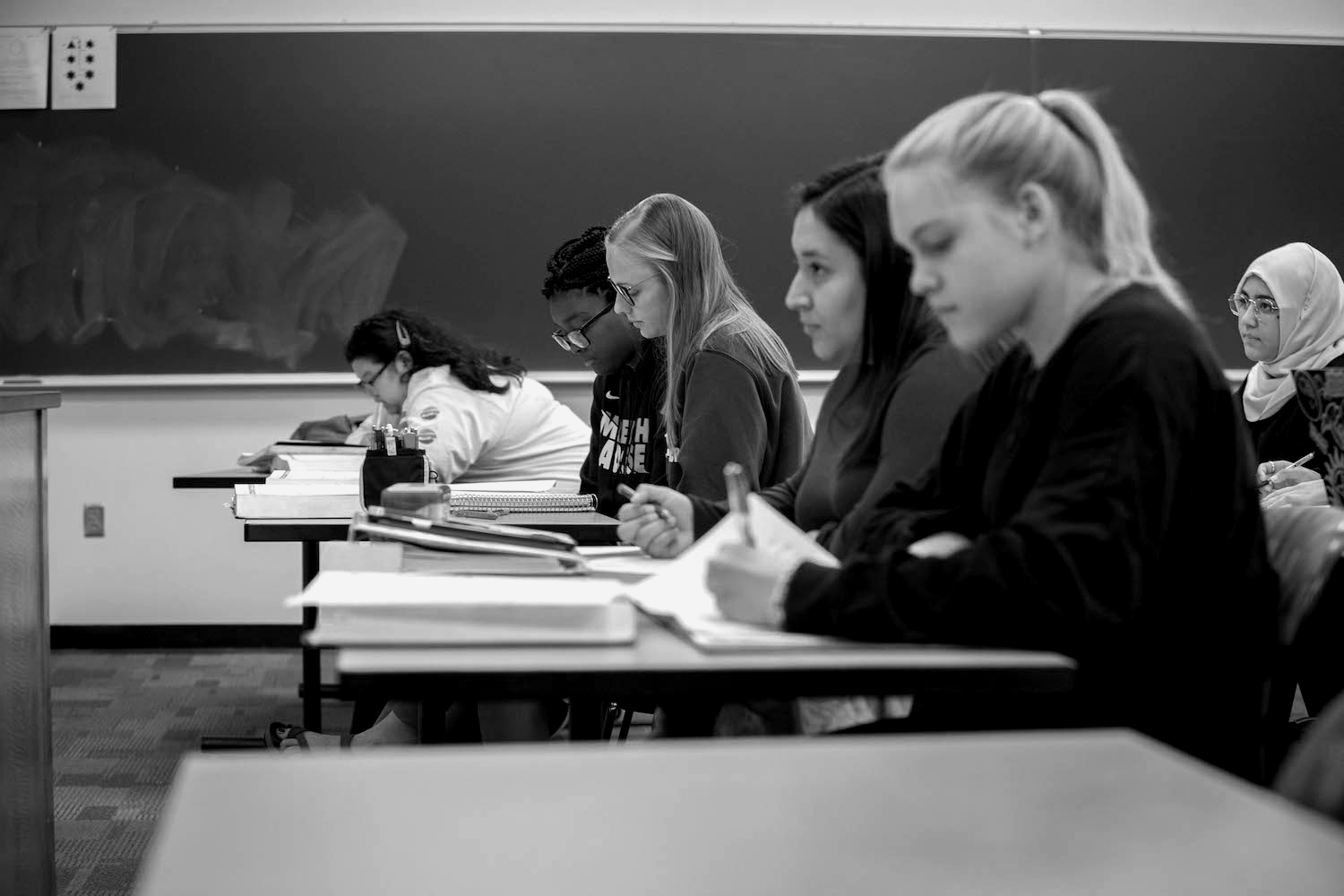
Cultivating Equitable and
Inclusive Pedagogical Practices
in STEM Higher Education
A multi-year project to create fully inclusive and equity-based STEM programs at Meredith

The Challenge
For more than 15 years, institutions of higher education, including Meredith, have focused on attracting and retaining historically underrepresented students in science, technology, engineering, and mathematics (STEM) majors in order to broaden participation and increase talent in STEM professions.
Despite an increased number of underrepresented students enrolling in STEM majors, there is a significant gap in the number of these students who complete degrees in STEM. This suggests a lack of success in truly addressing the underlying issues.
New research* looking at why students persist in these majors shows STEM instructor teaching methods have the largest effect on both switching to a non-STEM major (96%) and persisting in a STEM major (72%). The departure of underrepresented students, in particular, was found to be exacerbated as a function of curricular design and instructor pedagogy.
*Harper RP, Weston TJ, Seymour E. Student responses to problematic STEM teaching methods. In: Seymour E, Hewitt NM, eds. Talking About Leaving Revisited: Persistence, Relocation, and Loss in Undergraduate STEM Education. Springer Nature; 2019:149-195.

The Project
This project will focus on STEM instructor pedagogy, which heavily impacts both switchers and persistors, and contributes to the learning experience of all students. Transforming instruction to be more inclusive and equity-minded, also known as inclusive excellence, will help to ensure all students have the opportunity to succeed academically, persist in their major field of study, and attain their intended degree.
Inclusive excellence requires faculty to integrate the experiences and perspectives of students into their classrooms, being responsive to diverse student demographics and backgrounds such as race and ethnicity, gender, social class, academic preparation, learning challenges, age, and family educational attainment.
This type of instruction has been shown to lead to positive performance in STEM courses and key student affective characteristics (e.g., sense of belonging, STEM identity, self-efficacy) shown to impact STEM persistence, graduation rates, and retention, as well as classroom climate and more equitable student outcomes.
Project Timeline
The multi-year nature of the project allows time to deeply address needed change.
- August 2021: Initial needs assessment
- May 2022: Inclusive pedagogy workshop for Meredith STEM faculty
- Fall 2022 & Spring 2023: Revised STEM courses offered
- Spring 2023: Additional Needs Assessment
- May 2023: Second pedagogy workshop
- Fall 2023 & Spring 2024: STEM courses offered with additional revisions as needed

Expected Results
This project, which will run through September 2024, will provide an inclusive pedagogy intervention to broaden the participation of underrepresented students in STEM.
- An initial needs assessment will identify STEM curricula and pedagogical approaches that need to be more inclusive and equity-focused.
- This information will be used to design and provide inclusive pedagogy training to Meredith STEM faculty that will be rooted in effective higher education faculty development methods and supported by professional development learning communities during the course revision and implementation stages.
- Revised curricula and pedagogical approaches will be used in subsequent STEM course offerings. More immediately, the project will impact STEM faculty knowledge regarding
- barriers to inclusive excellence and social identity awareness
- attitudes toward inclusive teaching
- preparedness for instruction that is inclusive and equity-minded
- delivery of STEM curricula and pedagogical approaches reflecting inclusive excellence.
- Long-term anticipated impacts for underrepresented STEM students include increased persistence, student retention, number of graduates, number of students pursuing STEM advanced degrees, and number of students pursuing STEM careers, as well as a school culture that recognizes and fosters inclusive excellence.

Funding
Funder: The Arthur Vining Davis Foundations
Program Area: Private Higher Education
Award Dates: 5/3/2021 – 9/30/2024
Award Amount: $227,395
About the Arthur Vining Davis Foundations
The Arthur Vining Davis Foundations were organized in 1952 and are supported by two trusts established by Mr. Arthur Vining Davis. The Foundations aim to bear witness to Mr. Davis’ successful corporate leadership and his ambitious philanthropic vision. Since their inception, the Foundations have given over 3,800 grants totaling more than $300 million to colleges and universities, hospitals, medical schools, and divinity schools.